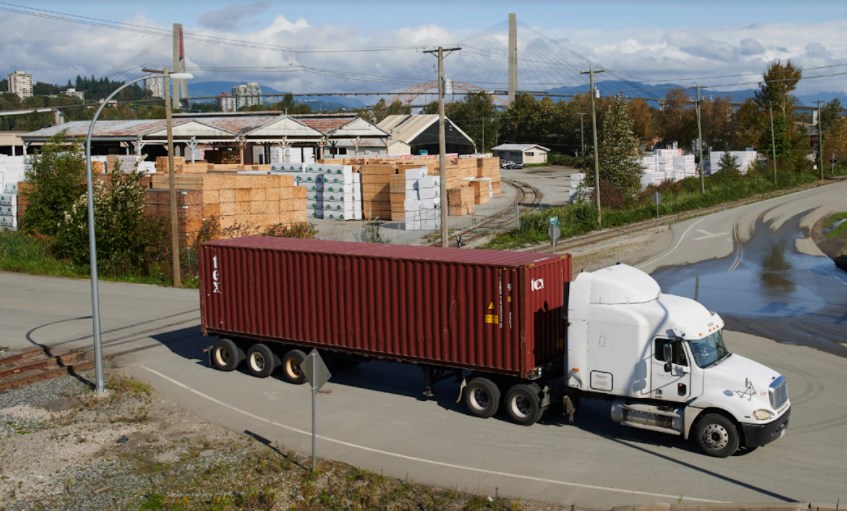An attempt by Metro Vancouver to strengthen industrial land protection at the regional level, at the expense of municipal autonomy over land use, hit a brick wall Friday.
A recommendation from Metro Vancouver’s regional planning committee to increase the voting threshold for minor industrial land use changes was rejected by two-thirds of the Metro Vancouver board, in a weighted vote.
The proposal to move from a 50%-plus-one vote to a two-thirds majority for minor changes to industrial and mixed-employment zoned land was rejected mostly by board members from cities with the most industrial land, including Vancouver and Surrey.
At one point in the board meeting, Surrey Mayor Doug McCallum referred to there being a “sneaky dictator” among the directors proposing the changes, although it’s unclear who specifically may be that sneaky dictator.
The proposal came from the regional planning committee chaired by New Westminster Mayor Jonathan Cote, who wanted the higher threshold.
Cote noted the threshold recommendation came from an industrial land taskforce that sought ways to protect industrial land from being converted to commercial or residential zoning – a process that was popular among the region’s city councils over the past two decades.
Cote said the higher threshold would make it harder for municipal councils to convert industrial land. As it stands now, a council can approve rezoning but it still needs Metro’s board approval with a 50%-plus-one vote.
“I think it definitely takes one of the strongest tools the region has to protect industrial land out of the toolbox. I certainly understand why individual cities want to maintain their own autonomy over these decisions, and there very well might be local context there that they want to maintain that control,” Cote told Glacier Media.
Surrey councillors on the regional government’s board were united in their opposition.
Surrey councillor Laurie Guerra cited autonomy for her city and said, at the committee level, that industrial land inventory has increased in recent years.
That is true for developed industrial land, although the total inventory has dipped by a sliver from 11,430 hectares in 2010 to 11,331 in 2015. Surrey accounts for 2,584 hectares.
Although Surrey councillor Linda Annis said she opposes any removal of industrial land in Surrey, she voted against the proposal.
Langley mayor Jack Froese said, “if it’s not broken why fix it?”
Surrey Board of Trade CEO Anita Huberman told Glacier Media the higher threshold is more red tape for minor amendments that could be for “creative uses of industrial land to instigate job creation or business attraction.”
Richmond councillor Harold Steves voted for the stricter measures, which would align industrial changes to that of removing land from the agricultural land reserve.
“I think these issues are so strong they are largely a regional issue, not a local issue,” said Steves.
According to the Regional Industrial Lands Strategy: “The Metro Vancouver region is experiencing a critical shortage of industrial land.”
Industrial lands comprise 4% of the region’s land base, and accommodate 27% of the region’s jobs, states Metro Vancouver. And to meet the demand forecast to 2050, an additional 800 to 1,600 hectares are needed.
Since 2014 to 2019, industrial land values have more than doubled and rents have increased 50% on average, according to Metro Vancouver.



